INSIDE ISSUE 18.47 | Nov. 22, 2019
 BIG STORY: Bipartisan effort to define ‘yes’ stalls in House Judiciary
BIG STORY: Bipartisan effort to define ‘yes’ stalls in House Judiciary
NEWS BRIEFS: House members pre-file 97 bills for 2020 session
COMMENTARY, Brack: First Carolina Thanksgiving quite different from this year’s
SPOTLIGHT: S.C. Senate Democratic Caucus
MY TURN, Knotts: It’s a good time to rethink runoffs
FEEDBACK: On that $50 tax refund
MYSTERY PHOTO: Field art
S.C. ENCYCLOPEDIA: Newberry, S.C.
Bipartisan effort to define ‘yes’ stalls in House Judiciary
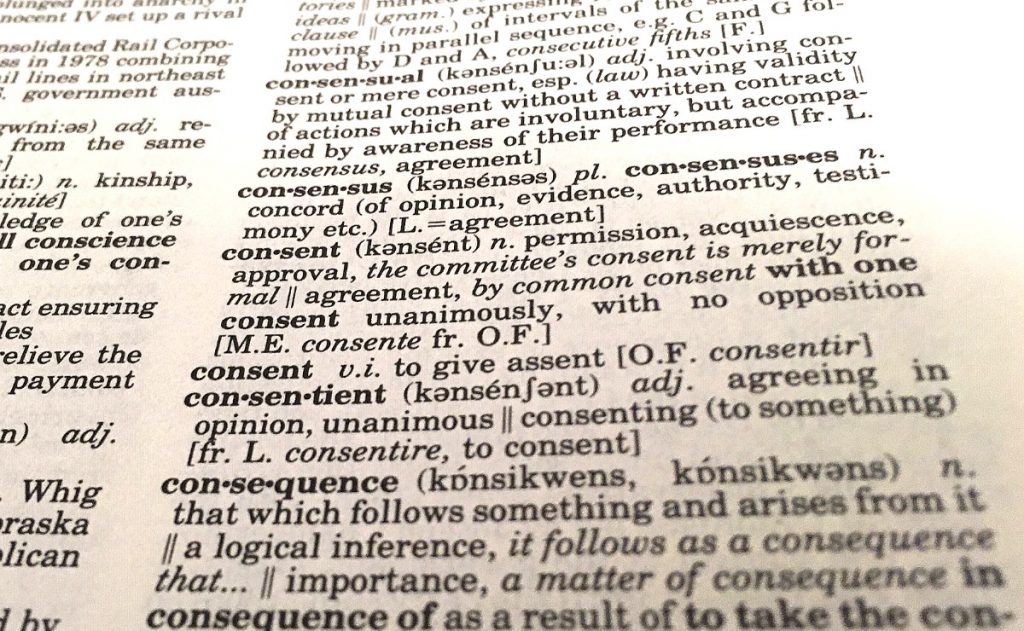
By Lindsay Street, Statehouse correspondent | What does it mean to say “yes” to a sexual act? A bipartisan group of lawmakers in the House wants to answer that question clearly in state law.
But first they have to clear a big hurdle: getting a hearing in the House Judiciary Committee.
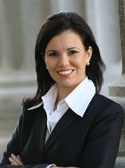
“We have nothing right now in South Carolina that defines consent at all and everyone is walking around with their own definition,” Lancaster Democratic Rep. Mandy Powers Norrell said. “We have seen it litigated. We’ve seen people say, ‘I thought she wanted to have sex’ as a defense in rape cases … Every state should clearly define what it means to consent to sexual activity in that state.”
Only half the states in the nation have a definition of consent, according to Rape, Abuse and Incest National Network.
The S.C. Coalition Against Domestic Violence and Sexual Assault, a coalition that aids domestic violence and sexual assault survivors, also supports defining consent just to make everything crystal clear
“The whole conversation around consent as it pertains to policy is fairly recent. This is something a lot of states are grappling with,” Executive Director Sara Barber said. “South Carolina always seems to be one of the last to get on board with having policies that make our culture safer for women (and other victims).”
Barber said this bill is a small but important piece in changing the state’s culture toward women and victims of sexual violence and domestic violence.
“Laws or policies tell us what a society thinks is important or what is acceptable behavior so a bill like this could aid in doing that. We have to recognize that to reduce sexual violence in our culture its going to take an effort on multiple fronts,” she said.
Introduced Jan. 31 by Norrell, House Bill 3829 would define consent as “words or overt actions indicating freely given agreement to have sexual intercourse or sexual contact,” and that lack of consent can be determined through words or conduct. The bill also states that previous consent for sexual acts does not determine future consent.
Currently under S.C. law, the state recognizes that a person that has a developmental disability or mental incapacity cannot give consent to a sexual act. It also recognizes that a person cannot give consent while unconscious or intoxicated.
Educating South Carolinians on a “no-brainer”
Having a definition of consent is two-fold for victims’ rights advocates: it would help with educating the population on what it means to consent, potentially warding off any non-consensual acts. Having a clear definition also would give prosecutors greater leverage in proving rape.
Norrell serves as vice chair of the Judiciary Committee where the bill has languished without a hearing. She said the committee has had other priorities but that she has been promised by Chair Peter McCoy, R-Charleston, that a hearing would happen once her bills on consent and other sexual violence are wrapped into an omnibus package on rape victims’ protections. McCoy did not respond to several phone calls seeking comment for this story.
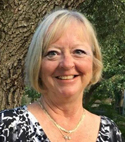
“Everything is stuck in Judiciary,” said Charleston Republican Rep. Lin Bennett, a co-sponsor. “I don’t know what his plans are this year but I hope (consent is) on his list … It’s a no brainer. It’s the right thing to do.”
House Speaker Pro Tempore Tommy Pope, R-York, has also co-sponsored the bill. He said there is no reason for the state not to have this definition in the books, but that it will take some pressure on Judiciary to get it heard during a jam-packed session and then addressed in both bodies.

Charleston Democratic Rep. Marvin Pendarvis, another co-sponsor, agreed that more pressure is needed.
“Nothing moves in Columbia until we muster up the support,” he said. “The bills that have the most amount of noise behind them are the ones that move the quickest.”
Norrell said she’s frustrated but won’t force the issue by demanding a hearing. She will continue to work on the bills and make requests that they are heard, she said.
“It seems to me that sexual assault should be a priority. We have big gaping holes in our law. We should fix those as soon as possible,” she said. “We should send a message to our citizens that preventing sexual assault, and punishing sexual assault is a priority in this state.”
- Have a comment? Send to: feedback@statehousereport.com
NEWS BRIEFS
House members pre-file 97 bills for 2020 session

By Lindsay Street, Statehouse correspondent | House members filed 97 bills on Wednesday in the first of two pre-filing dates accepting bills before the second year of the two-year session begins Jan. 14. A second round of filing will be held Dec. 11. The Senate will also pre-file its legislation on Dec. 11.
Here are a few of the bills added this week:
- Tax breaks. House Bill 4657 that would “enhance” federal opportunity zone tax breaks by offering breaks and more transparency at the state-level. Read more about S.C. Rep. Marvin Pendarvis’ plan here.
- Detectors. HB.. 4665 by Rep. Wendell Gilliard, D-North Charleston, would require all public schools have a walk-through metal detector installed at all entrances by the 2020-2021 school year.
- Bullets. H.B. 4706 by Rep. J.A. Moore, D-Goose Creek, would provide a penalty for each bullet fired from a gun when a person is fatally shot. Read more about what South Carolina residents say they want to do about shooting deaths.
- Diversion programs. H.B. 4719 by Rep. Todd Rutherford, D-Richland, would establish pre-arrest diversion programs for minors in the state, among other juvenile justice changes. Read more about how more children could be getting caught in the judicial system than ever before in South Carolina.
- Vaping. H.B. 4710 by Rep. Beth Bernstein, D-Richland, and others would include vaping in the state’s Youth Access to Tobacco Prevention Act of 2006. Read more about the regulations that could be coming to electronic cigarettes’ sales in the state.
- Naloxone. H.B. 4711 by Rep. Russell Fry, R-Horry, would require prescribers to offer a prescription for opioid-overdose antidote Naloxone to a patient under certain circumstances. Read more about what the state is doing on opioids.
- Hate crimes. H.B. 4680 by Rep. Bernstein and others seeks to add penalties for crimes motivated by a person’s race, religion, gender or sexual identity. The bill also provides an avenue for victims to bring civil action for damages sustained.
- Related: Read editor Andy Brack’s piece on why it’s time for South Carolina to have a hate crime law.
- See all the bills here.
In other recent news:
![]() Senate Education Committee to talk overhaul Dec. 12. The second full-committee hearing on a sweeping overhaul bill for public education will take place 2 p.m. Dec. 12 in room 308 of the Gressette building on the Statehouse grounds in Columbia. Education Chair Greg Hembree, R-Horry, told Statehouse Report last week he is pushing the committee to give a favorable report for the bill originally passed by the House before the start of the 2020 legislative session Jan. 14. See agenda here.
Senate Education Committee to talk overhaul Dec. 12. The second full-committee hearing on a sweeping overhaul bill for public education will take place 2 p.m. Dec. 12 in room 308 of the Gressette building on the Statehouse grounds in Columbia. Education Chair Greg Hembree, R-Horry, told Statehouse Report last week he is pushing the committee to give a favorable report for the bill originally passed by the House before the start of the 2020 legislative session Jan. 14. See agenda here.
-
- Related: The committee’s education funding formula panel will meet 10 a.m. Dec. 4 in room room 308 of the Gressette building on the Statehouse grounds in Columbia. Read the agenda.
Clemson gets $1.24M grant for offshore wind research. Clemson researchers and the North Charleston wind turbine lab received a U.S. Department of Energy grant to develop a new way to test a key piece of equipment on offshore wind turbines, enhancing their reliability and making them more cost-effective to build. Read more about the grant here.
‘Angel’ charities recognized by secretary of state. Secretary of State Mark Hammond has released the agency’s annual list of nonprofits donating the most money — more than 80 percent of their expenses — towards their causes. Click here to find some of the best charities, according to Hammond.
Santee Cooper reform plan approved Thursday. State-owned utility Santee Cooper has approved a plan to improve its finances, as mandated by a legislative directive. The plan will be considered alongside bids to manage or buy the utility in a January report to legislators. It will remain secret until then. Read more.
Regulators tentatively agree to drop solar rates. A draft directive from the S.C. Public Service Commission would put solar reimbursement rates in South Carolina at the lowest in the nation — cutting them more than a third from where they have previously been. The directive also would limit contracts to 10 years. Both moves will effectively end solar investment in the state, solar advocates said this week. PSC Commissioner Tom Ervin told Statehouse Report that adjustments to the directive could happen over the coming weeks, and it will be addressed again in two years. Read more via The State.
A good cause in a box. Blessing Boxes are popping up across South Carolina as a Palmetto State way to help feed the community. Read more from our sister publication Charleston City Paper about how these micro-warehouses seek to take on the big issue of food insecurity.
Simrill to be honored for leadership. The 2019 Wilkins Award for Excellence in Civic Leadership will go to House Majority Leader Gary Simrill, who was nominated for this award by his peers in the State House. The citizen being recognized with the award is Nella Barkley, who has worked on elevating education, improving the arts, and creating opportunities for marginalized populations. Simrill and Barkley will be recognized at a Columbia leadership dinner Jan. 14.
S.C. collects nearly $64M in sales tax from online retailers. S.C. Department of Revenue has reported that out-of-state, online retailers have contributed to $64 million in sales taxes to the state. Read more.
Public hearings on judicial merit selections. The Judicial Merit Selection Commission will hold public hearings Dec. 2-4 at 9:30 a.m. in room 105 of the Gressette building on the Statehouse grounds in Columbia. See the agenda here.
2020 candidate calendar
 Throughout the campaign season, we are working to keep South Carolina informed of candidate events in the state. Have an event you want us to know about? Email us at 2020news@statehousereport.com.
Throughout the campaign season, we are working to keep South Carolina informed of candidate events in the state. Have an event you want us to know about? Email us at 2020news@statehousereport.com.
Yang stops in Rock Hill Nov. 22. Democratic presidential candidate Andrew Yang will visit South Carolina today and hold a rally 7 p.m. at Old Town Amphitheater in Rock Hill. Learn more.
Harris makes 3-day swing in S.C. California Sen. Kamala Harris will hold a black women town hall 6 p.m. Nov. 23 at Benedict College (RSVP). Then, on Nov. 24, Harris will attend three churches:
-
- 10:30-11 a.m. at Greater St. James Missionary Baptist Church in Bennettsville;
- 11:15-11:45 a.m. at Community of Grace Church in Bennettsville; and,
- 1:55 p.m. at Grace Temple Church in Wallace (RSVP).
On Nov. 25, Harris will hold a meet-and-greet 3:55 p.m. in Berkeley County. Details have not been announced for that stop. Click here to learn more.
Klobuchar makes 2-day swing in S.C. Minnesota Sen. Amy Klobuchar will hold campaign events Nov. 29 and Nov. 30. Details have not been announced yet. Click here to learn more.
- Have a comment? Send to: feedback@statehousereport.com
First Carolina Thanksgiving quite different from this year’s

By Andy Brack, editor and publisher | The first Thanksgiving in South Carolina probably was in French. Or Spanish.
More than 100 years before the English settled in Charleston in 1670, the French built a small wooden fort on what is now Parris Island. Known as Charlesfort in honor of the French king, it was abandoned after a couple of years.
 Then in 1566, the Spanish established Santa Elena in the same area as the northernmost settlement of its province of La Florida. For much of its first 10 years, Santa Elena was the capital of La Florida.
Then in 1566, the Spanish established Santa Elena in the same area as the northernmost settlement of its province of La Florida. For much of its first 10 years, Santa Elena was the capital of La Florida.
Both footholds in what is now South Carolina shared two things: the lack of a steady supply of food and tough living conditions. But French and Spanish cultures, like those of other European nations who sent explorers to the New World, had religious traditions of giving thanks, as outlined by Charleston historian Nic Butler: “It was common for the ‘commander-in-chief’ to issue a proclamation, at least once a year, setting aside a specific ‘holyday’ or ‘holiday’ for quiet reflection. That is to say, a day for people to refrain from all work and to focus their thoughts and prayers on a specific topic. Such proclamations might occur at any point during the calendar year, and might occur more than once a year, depending on what was happening in the local community.”
What did they eat? Your guess is as good as mine, but they had access to wild game, including turkeys, as well as maize and marshes full of seafood. Maybe they had turkey and an early concoction of the state dish, shrimp and grits!
So while most students learn the Pilgrims celebrated the first Thanksgiving in Massachusetts in 1621, it’s more likely they merely followed a tradition of giving thanks that had been around for a long time.
Butler writes the earliest recorded observance of a public thanksgiving in the English colony of South Carolina was in October 1706 after a militia beat Spanish and French troops from St. Augustine in Florida. He wrote:
“The Rev. Francis LeJau, a missionary from England who arrived in Charleston on the 18th of October 1706, noted in a letter that ‘Upon my first Landing I saw the Inhabitants rejoycing: they had kept the day before holy for a thanksgiving to Almighty God for being safely delivered from an Invasion from the French and Spaniards.’”
As the colonies became a new nation in the late 1700s, Thanksgiving was celebrated off and on, depending on a presidential proclamation. In 1837, Northern abolitionist and editor Sarah Josepha Hale started a campaign for a national day of thanks every year.
In 1844, S.C. Gov. James Henry Hammond called for South Caroliians to worship as “becomes all Christian nations.” That irritated the state’s Jews, who were early settlers to the English colony more than 100 years earlier thanks to its religious freedom, enshrined in the U.S. Constitution by South Carolina framer Charles Pinckney. Charleston’s Jews protested Hammond’s holiday by reportedly keeping two synagogues in Charleston closed.
In the 1850s, many states, including South Carolina, adopted Hale’s recommendation and declared Nov. 25 to be an annual thanksgiving. In 1858, the Charleston Courier reported, “Our city presented a Sunday appearance. Business rested. The stones answered only to the wheels of light vehicles. The church-bells discoursed sweet music, and crowds flocked to the houses of worship.”
Then in 1863 during the Civil War, President Abraham Lincoln established the custom of the last Thursday of the month being proclaimed as a national holiday. In the years that followed, each president made a thanksgiving proclamation. It wasn’t until the fall of 1941 that President Franklin D. Roosevelt signed a law setting Thanksgiving as an annual national holiday in November.
This year as your family partakes in its Thanksgiving traditions, let’s try to set aside all of the squabbling in Washington and in local politics. Let’s stop for a moment to give thanks for blessings of family, friends, business, community and America. And then, if you’re inclined, turkey-out on a feast of good food, parades and football. Gobble, gobble.
Andy Brack’s latest book, “We Can Do Better, South Carolina,” is now available in paperback and for Kindle via Amazon.
- Have a comment? Send to: feedback@statehousereport.com.
S.C. Senate Democratic Caucus
 The public spiritedness of our underwriters allows us to bring Statehouse Report to you at no cost. This week’s spotlighted underwriter is the S.C. Senate Democratic Caucus. Organized almost 25 years ago, the Caucus has played an important role in many of the historic issues facing our state. As a vibrant minority party in the Senate, its role is to represent our constituents and present viable alternatives on critical issues. The S.C. Senate Democratic Caucus remains a unique place for this to occur in our policy process.
The public spiritedness of our underwriters allows us to bring Statehouse Report to you at no cost. This week’s spotlighted underwriter is the S.C. Senate Democratic Caucus. Organized almost 25 years ago, the Caucus has played an important role in many of the historic issues facing our state. As a vibrant minority party in the Senate, its role is to represent our constituents and present viable alternatives on critical issues. The S.C. Senate Democratic Caucus remains a unique place for this to occur in our policy process.
- Learn more about the Caucus at: www.scsenatedems.org.
Knotts: It’s a good time to rethink runoffs

By Gibbs Knotts | During the Nov. 5 general election in Charleston, John Tecklenburg won 47.8 percent of the vote in a six-candidate field but fell just short of the 50-percent-plus-1 vote threshold required by the city’s election rules. Mike Seekings received the next highest level of support, with 34.3 percent. As a result, City of Charleston voters returned to the polls on Nov. 19 to participate in a runoff election between Tecklenburg and Seekings.
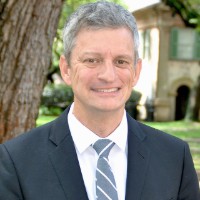
Local governments in South Carolina are empowered to make the choice about whether to have runoffs, or simply to let the person who wins the plurality of the vote be declared the winner. Even in the Lowcountry, some local governments use runoffs, while others do not. For example, in North Charleston, Keith Summey won 46.7 percent in a five-candidate field but was reelected because there is not a majority vote requirement. Similarly, Ricky Waring was elected mayor in Summerville with 47.3 percent of votes.
After consecutive election cycles with mayoral runoffs, it is a good time for Charleston residents to rethink the city’s runoff requirement.
One reason to consider a change is the racially charged history of runoff elections. Runoffs are a relic of the one-party Democratic South, an era of racial segregation and black political oppression. During the Jim Crow era, from the end of Reconstruction through the 1950s, Democratic Party primaries determined political winners and losers in the region. Though whites were nearly always the only racial group permitted to vote in the primaries, there were instances where the vote was split among several white candidates. Runoff requirements emerged as a way to unite a majority of the electorate behind a single candidate, ensuring white Democratic dominance in Southern society.
The use of runoffs accelerated following the passage of the Voting Rights Act of 1965. The number of African-American voters increased dramatically following this legislation, and runoffs were used to make it harder for black candidates to win political office. In some jurisdictions, an African-American candidate might be able to win 40 percent of the vote, but not the majority needed for a victory. As a result, the runoff allowed white voters to unite behind a single white candidate, making minority office holding more difficult.
In addition to the discriminatory history of runoffs, they have a number of other drawbacks. Turnout almost always decreases from the general election to the runoff. For example, turnout decreased by 6.3 percent between the initial election and the runoff for Charleston’s 2015 mayoral contest.
Runoffs also place additional burdens on candidates and municipalities. Candidates are forced to raise and spend additional resources, and county election boards have to spend money to open polling locations.
What should Charleston do in future election contests? City leaders could follow the lead of North Charleston and Summerville, where the candidate who receives a plurality of the vote is declared the winner. Another option is to lower the threshold required to win an election.
Charleston residents could also consider Instant Runoff Voting (IRV). This procedure eliminates the need for a runoff election because voters rank candidates when casting their initial ballot. A number of major U.S. cities use IRV, including Oakland, Calif.; St. Paul, Minn., and Las Cruces, N.M. Even here in South Carolina, military and overseas voters provide ranked choices during the submission of their initial ballot, eliminating the need to participate in a second round of voting should a runoff be needed.
How does IRV work? During the initial stage of vote counting, all “first choice” votes are tallied. If no candidate gets a majority, the candidate receiving the lowest vote total is eliminated. The “second choice” for all the voters who picked the eliminated candidate is then added to the remaining candidates vote totals. This process continues until a candidate receives a majority.
While it is important to study the issues, research candidate positions, and cast ballots, our democracy also depends on a periodic examination of election rules and procedures. Charleston residents should engage in a conversation about the city’s runoff requirement and consider other options that might be a better fit for our community.
Gibbs Knotts is a professor of political science at the College of Charleston. His co-authored book, First in the South: Why South Carolina’s Presidential Primary Matters, will be released next month by the University of South Carolina Press. This commentary first was published in our sister publication, the Charleston City Paper.
EDITOR’S NOTE: We got several comments over the past week through our website, but we don’t publish comments in this weekly Report unless we can verify the writer’s contact information. If you comment online, we encourage you to send us your thoughts by email too with your contact information.
On that $50 tax refund
To the editor:
![]() Rather than sending me $50 that buys a middle of the road dinner for two, invest the surplus in meaningful acts that have big paybacks that can make a difference over the long term.
Rather than sending me $50 that buys a middle of the road dinner for two, invest the surplus in meaningful acts that have big paybacks that can make a difference over the long term.
Forget the spoils approach. Develop investment criteria, get wise people to make suggestions and commission panels to score them.
— Fred Palm, Edisto Island, S.C.
Tell us what you think — sound off!
We love hearing from our readers and encourage you to share your opinions. But you’ve got to provide us with contact information so we can verify your letters. Letters to the editor are published weekly. We reserve the right to edit for length and clarity. Comments are limited to 250 words or less. Please include your name and contact information.
- Send your letters or comments to: feedback@statehousereport.com
Field art

Somewhere in South Carolina you can find this interesting field art. Share where you think it is. Even better: What is it and why is it there? Send your best guess to feedback@statehousereport.com. And don’t forget to include your name and the town in which you live.
Our previous Mystery Photo
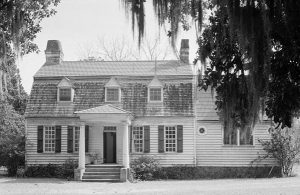 Our Nov. 15 image, “Not a subdivision home,” was of Oakland plantation house, which is about seven miles east of Mount Pleasant.
Our Nov. 15 image, “Not a subdivision home,” was of Oakland plantation house, which is about seven miles east of Mount Pleasant.
Congratulations to all who sent in correct answers: Timothy Pace and Jay Altman, both of Columbia; David Lupo of Mount Pleasant; Jacie Godfrey of Florence; Don Clark of Hartsville; Frank Bouknight of Summerville; and George Graf of Palmyra, Va.
Lupo added: “That would be the Oakland Plantation House (originally Youghall Plantation). Once described as being east of Mount Pleasant, it would probably be more accurately described these days as being in northern Mount Pleasant. The plantation property also includes a large (133 acre) area protected via a conservation easement held by the East Cooper Land Trust.
Bouknight shared: “The Oakland Plantation House which is also known as Youghall or Youghal Plantation House, was built about 1750 in Charleston County, South Carolina about 7 mi east of Mount Pleasant. It is located about 1 mile south of U.S. Route 17 on Stratton Place
Finally, Graf provided additional context via popflock.com: “John Perrie, who came from Ireland, acquired 982 acres in Christ Church Parish. He named the plantation after Youghal in County Cork (my note that Sir Walter Raleigh’s home ‘Myrtle Grove’ is in Youghal Ireland). At his death in 1713, the plantation passed on to his daughter. Her husband conveyed the property to Captain George Benison in 1740. It is believed that he built the house. In 1755, Charles Barksdale acquired the plantation. This family controlled the property for the next century.
“In the 1850s, Mary Barksdale and her husband, James McBeth were the owners. He probably changed the name to Oakland. In 1859, Philip E. Porcher bought the property. His descendants have owned it since. Recently a portion of the land has been converted to commercial development. Also about 133 acres (54 ha) of natural habitat has been set aside under a conservation easement.”
- Send us a mystery: If you have a photo that you believe will stump readers, send it along (but make sure to tell us what it is because it may stump us too!) Send to: feedback@statehousereport.com and mark it as a photo submission. Thanks.
S.C. ENCYCLOPEDIA
Newberry, S.C.
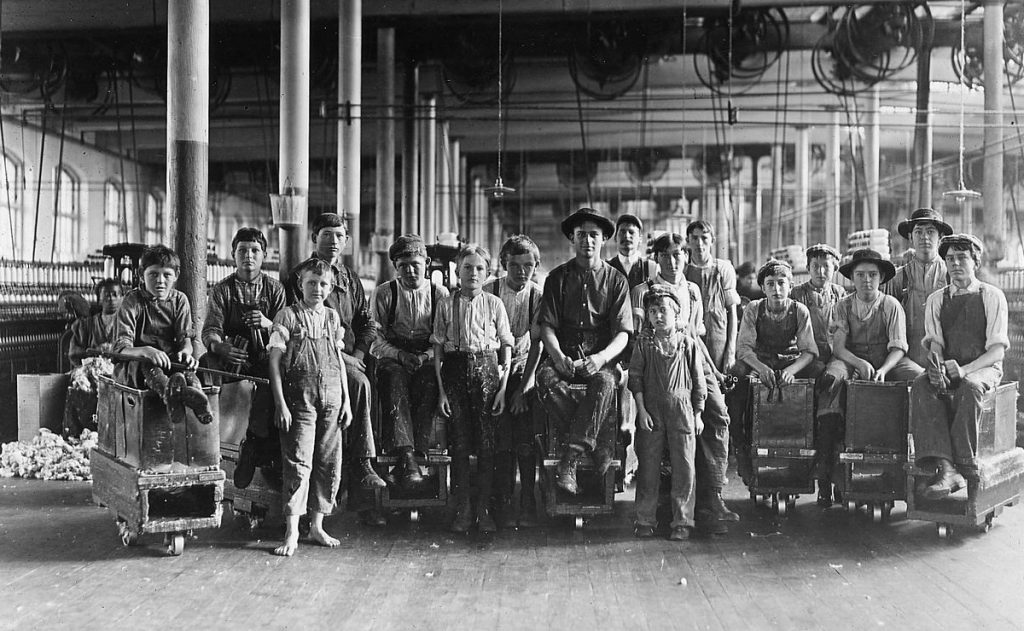
S.C. Encyclopedia | Newberry (population: 10,337, in 2018) is the county seat of Newberry County. In 1785 the General Assembly created the county from the Ninety Six Judicial District. In 1789 the county accepted John Coate’s donation of two acres as a courthouse site. The first brick courthouse was built between 1799 and 1801 and torn down in 1850. Jacob Graves designed a replacement courthouse that was first used in 1853. After the Civil War, Osborne Wells repaired the old courthouse and added a symbolic frieze to the entablature of the front gable. The design shows an uprooted palmetto tree (the government of the state of South Carolina) clasped in the beak of an eagle (the United States of America).
Although the most important district town, Newberry remained quite small through most of the antebellum era. In 1826 Robert Mills counted between twenty and thirty dwellings and stores that carried on “considerable business” during court sessions. By 1840 the population stood at just three hundred, and Columbia was the principal market for most district planters. The 1850s, however, marked the start of considerable growth. The influential Bank of the State of South Carolina established an agency in Newberry in 1851, and the Bank of Newberry was chartered the following year. Town merchants invested in the Greenville and Columbia Railroad, which was completed in 1853 and whose line ran through Newberry. Newberry College was chartered in 1856 and opened in 1859. Between 1850 and 1870 the population almost quadrupled, from 509 to 1,891.
Newberry’s prosperity continued throughout the nineteenth century and into the twentieth. In 1873 the Newberry Herald claimed that the town was the second largest cotton market in South Carolina, shipping some 24,000 bales annually. That same year the General Assembly approved the incorporation of the Newberry Cotton Mill, which commenced operations in 1884. Two railroads received charters as well, the Newberry and Chester (1873) and the Newberry and Augusta (1874). An opera house opened in 1882, a symbol of the town’s prosperity. In 1910 Newberry boasted, among other commercial establishments, two hotels, seven furniture stores, five hardware stores, and four banks. Two new cotton mills, the Mollohon Mill and Oakland Mill, commenced operations respectively in 1902 and 1912.
The 1920s and 1930s brought hard times to Newberry. The arrival of the boll weevil decimated area cotton farms, and town merchants suffered accordingly. Two banks failed, and a third was forced to merge. Workers in Newberry’s cotton mills, protesting against the hated “stretch-out,” carried out bitter strikes in 1934 and 1936 that divided residents for years.
Following World War II, there was a return to prosperity. Newberry’s first radio station, WKDK, went on the air in 1946. New, locally owned businesses included orchid growers Carter and Holmes and Senn Trucking Company. The opening of Interstate 26 and new industries swelled Newberry’s population by 12.7 percent between 1960 and 1970. The 1980s brought two natural disasters: a killer tornado on March 28, 1984, and a flood on August 18, 1986.
The renovation of the Newberry Opera House as a performing arts center, completed in 1999, sparked a renaissance of downtown Newberry. Newberry celebrates its past with its historic districts; its diversified economy and revived cultural base suggest a bright future.
— Excerpted from an entry by Alexia Jones Helsley. This entry may not have been updated since 2006. To read more about this or 2,000 other entries about South Carolina, check out The South Carolina Encyclopedia, published in 2006 by USC Press. (Information used by permission.)
ABOUT STATEHOUSE REPORT
Statehouse Report, founded in 2001 as a weekly legislative forecast that informs readers about what is going to happen in South Carolina politics and policy, is provided to you at no charge every Friday.
Meet our team
- Editor and publisher: Andy Brack, 843.670.3996
- Statehouse correspondent: Lindsay Street
Buy the book (hint: great holiday gift!)
Now you can get a copy of editor and publisher Andy Brack’s We Can Do Better, South Carolina! ($14.99) as a paperback or as a Kindle book ($7.99). . The book of essays offers incisive commentaries by editor and publisher Andy Brack on the American South, the common good, vexing problems for the Palmetto State and interesting South Carolina leaders.
More
-
- Mailing address: Send inquiries by mail to: 1316 Rutledge Ave., Charleston, SC 29403
- Subscriptions are free: Click to subscribe.
- We hope you’ll keep receiving the great news and information from Statehouse Report, but if you need to unsubscribe, go to the bottom of the weekly email issue and follow the instructions.
- © 2019, Statehouse Report, a publication of City Paper Publishing, LLC. All rights reserved.
- Read our sister publications: Charleston City Paper (every Wednesday) | Charleston Currents (every Monday)


